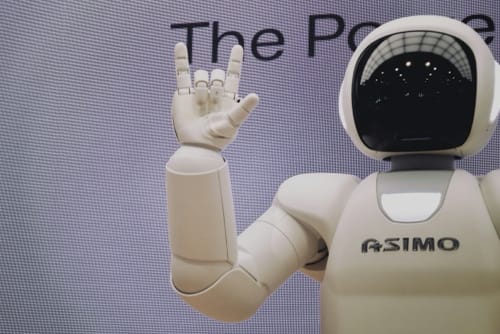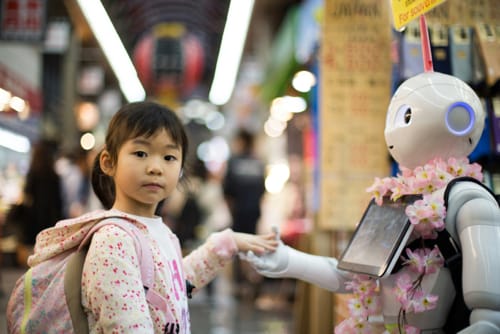Artificial Intelligence and Its Applications: Current and Future Potential in Society and Business
Artificial intelligence and its applications have become one of the most influential forces shaping the modern world. From personal assistants on our smartphones to advanced data-driven business strategies, AI has proven to be a disruptive technology capable of transforming entire industries and redefining the way we live, work, and interact.
Its impact is no longer limited to technology companies—it is now present in small businesses, medium-sized enterprises, large corporations, and even in the daily lives of millions of citizens across different economies and societies.
The Current Relevance of Artificial Intelligence
The term artificial intelligence and its applications refers to the use of systems and algorithms capable of learning, reasoning, and performing tasks that traditionally required human intelligence.
In the last decade, the global AI market has grown exponentially, valued at over $196 billion in 2023, with projections indicating it could reach $1.8 trillion by 2030 (Grand View Research). This growth has been fueled by advances in machine learning, natural language processing, and automation tools now adopted across all industries.
Countries with the largest economies—such as the United States, China, and members of the European Union—are at the forefront of AI research and investment. However, developing nations are beginning to adopt these technologies as well, recognizing the opportunities for economic growth, productivity gains, and improved social services.
Differences in Adoption by Economy Size and Social Evolution
In advanced economies, AI has been integrated into practically every sector. For example, in the U.S., more than 60% of large companies already use AI to improve operations, marketing, and customer service (McKinsey Global Institute). In China, the government has launched a strategic plan to become the global leader in AI by 2030, allocating billions of dollars to research and development.
Meanwhile, in Latin America, including Mexico, adoption is slower but steadily growing. According to the Inter-American Development Bank, AI could increase productivity in the region by up to 5% annually, provided governments and businesses invest in infrastructure and digital education. This demonstrates how the evolution of societies and economies directly influences the speed and efficiency of AI adoption.
Applications of Artificial Intelligence in Business
The benefits of artificial intelligence and its applications are visible in companies of all sizes:
- Small businesses: They use AI tools for digital marketing automation, social media management, and e-commerce. For example, chatbots allow 24/7 customer service at a low cost, improving user satisfaction and conversion rates.
- Medium-sized companies: These organizations adopt predictive analytics to anticipate consumer behavior, optimize inventory, and design personalized experiences.
- Large corporations: Global enterprises integrate AI into decision-making processes, risk analysis, and R&D. Tech giants like Google, Microsoft, and Amazon use AI to enhance their platforms and expand new products such as cloud-based AI services.

Real-World Use Cases and Benefits
The adoption of AI has generated measurable results across industries:
- Healthcare: AI is applied to medical imaging and early diagnosis. For example, IBM Watson Health has supported doctors in cancer detection with accuracy rates exceeding 90%.
- Education: Platforms like Coursera and Duolingo use AI to personalize learning and adapt content to each student’s progress.
- Science and research: AI accelerates drug discovery and space exploration. During the COVID-19 pandemic, AI was essential in analyzing data to predict infection patterns and accelerate vaccine development.
- Business and marketing: Companies using AI in marketing campaigns report an average 20–30% increase in ROI, thanks to hyper-personalization and segmentation.
These examples demonstrate that AI is not just a futuristic concept, but a present-day necessity driving innovation and efficiency.
Costs and Challenges of AI Implementation
Although AI offers multiple benefits, adoption also presents challenges. Implementation costs can be high, especially for small businesses without sufficient digital infrastructure. Additionally, issues such as the lack of trained professionals, ethical concerns about data privacy, and fears of job displacement create resistance in some sectors.
However, these challenges also represent opportunities for companies that adapt early. Those that implement AI correctly not only improve their competitiveness but also establish themselves as market leaders in their industries.
The Future of Artificial Intelligence and Its Applications
The future of artificial intelligence and its applications looks promising and expansive. By 2030, PwC estimates that AI could add $15.7 trillion to the global economy, with the greatest gains in China and North America.
Some foreseeable developments include:
- Greater accessibility: As implementation costs decrease, more small businesses will be able to adopt AI solutions.
- New immersive experiences: The combination of AI with augmented reality (AR) and virtual reality (VR) will create unprecedented possibilities in marketing, education, and entertainment.
- Collaborative AI: Future systems will not replace humans but complement them, supporting professionals in making faster and more accurate decisions.
- Impact on developing countries: Latin America, Africa, and Southeast Asia have enormous opportunities to adopt AI and boost their competitiveness in the global market.
Why Adopting AI Early Is Essential
Waiting too long to adopt AI could mean falling behind in global competitiveness. For businesses, early integration ensures better positioning in their markets, greater operational efficiency, and stronger connections with customers. For societies, it means developing citizens who are better prepared for the demands of the future.
Conclusion
Artificial intelligence and its applications are no longer optional—they are fundamental to the development of businesses, governments, and citizens. From improving everyday services to creating solutions for global challenges, AI is shaping the future in real time.
Companies and countries that embrace this technology early will be better positioned to lead in the coming decades, while those that resist will risk being left behind in a world that is moving faster than ever.

